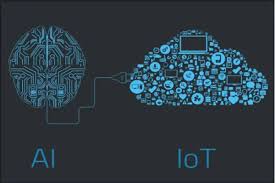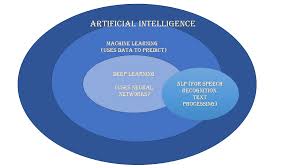Artificial Intelligence and Data Science: Transforming the Future
In recent years, artificial intelligence (AI) and data science have emerged as two of the most transformative technologies, reshaping industries and redefining possibilities. Together, they are driving innovation across various sectors, from healthcare to finance, and beyond.
The Power of Artificial Intelligence
Artificial intelligence refers to the simulation of human intelligence in machines that are programmed to think like humans and mimic their actions. AI systems can be designed for specific tasks such as speech recognition, decision-making, or visual perception. The ultimate goal is to create systems that can perform complex tasks without human intervention.
AI technologies are already making significant impacts in areas such as:
- Healthcare: AI is being used to analyse medical data for faster diagnosis and personalised treatment plans.
- Finance: Algorithms help in fraud detection and automate trading processes.
- Automotive: Self-driving cars use AI for navigation and safety features.
The Role of Data Science
Data science involves extracting knowledge and insights from structured and unstructured data using scientific methods, processes, algorithms, and systems. It combines multiple fields such as statistics, machine learning (a subset of AI), data analysis, and domain expertise to interpret complex data sets.
The role of data science is crucial in:
- Predictive Analytics: Businesses use data science to predict future trends based on historical data.
- User Behaviour Analysis: Companies analyse user behaviour to improve products and services.
- Operational Efficiency: Data-driven insights help optimise business operations for better performance.
The Synergy Between AI and Data Science
The intersection of AI and data science creates a powerful synergy that enhances capabilities across various domains. While data science provides the tools for understanding patterns within large datasets, AI offers the means to automate these insights into actionable outcomes. This combination allows organisations to make informed decisions quickly and efficiently.
The Future Outlook
The future of AI and data science promises even greater advancements. As technology continues to evolve, these fields will likely become more integrated into everyday life. Ethical considerations will also play a significant role in shaping how these technologies are developed and implemented responsibly.
The potential for AI and data science is vast, with endless opportunities waiting to be explored. As we continue on this journey of technological discovery, one thing remains clear: artificial intelligence and data science are not just transforming industries; they are transforming our world.
Essential Tips for Mastering Artificial Intelligence and Data Science
- Understand the fundamentals of statistics and mathematics for better grasp of AI and data science concepts.
- Stay updated with the latest trends and advancements in AI and data science through online courses, webinars, and research papers.
- Practice coding regularly to enhance your programming skills in languages like Python, R, or Java commonly used in AI and data science.
- Collaborate with peers in the field to exchange knowledge, ideas, and best practices to broaden your understanding.
- Experiment with various machine learning algorithms and techniques to gain practical experience in solving real-world problems.
- Maintain a curious mindset and continuously explore new areas within AI and data science to expand your expertise.
Understand the fundamentals of statistics and mathematics for better grasp of AI and data science concepts.
A solid understanding of the fundamentals of statistics and mathematics is crucial for anyone looking to delve into the fields of artificial intelligence and data science. These disciplines form the backbone of AI algorithms and data analysis techniques. Statistics provides the tools for interpreting data, identifying patterns, and making informed predictions, which are essential for developing robust AI models. Mathematics, particularly areas such as linear algebra and calculus, underpins many machine learning algorithms, enabling precise calculations and optimisations. By mastering these foundational subjects, individuals can gain a deeper comprehension of complex AI concepts and enhance their ability to create effective data-driven solutions.
Stay updated with the latest trends and advancements in AI and data science through online courses, webinars, and research papers.
In the rapidly evolving fields of artificial intelligence and data science, staying updated with the latest trends and advancements is crucial for professionals and enthusiasts alike. Engaging with online courses, webinars, and research papers can provide valuable insights into new technologies, methodologies, and applications. Online courses offer structured learning experiences that can deepen your understanding of complex concepts, while webinars provide opportunities to hear from industry experts and engage with current discussions. Research papers, on the other hand, offer a glimpse into cutting-edge developments and innovations in the field. By consistently seeking out these resources, one can maintain a competitive edge and contribute effectively to the ever-growing landscape of AI and data science.
Practice coding regularly to enhance your programming skills in languages like Python, R, or Java commonly used in AI and data science.
Regular coding practice is essential for enhancing programming skills, particularly in languages like Python, R, or Java that are commonly used in artificial intelligence and data science. These languages offer powerful libraries and frameworks tailored for data manipulation, statistical analysis, and machine learning applications. By consistently writing and refining code, individuals can deepen their understanding of these tools, improve problem-solving abilities, and stay updated with the latest advancements in technology. This ongoing practice not only builds proficiency but also boosts confidence in tackling complex projects and developing innovative solutions within the fields of AI and data science.
Collaborate with peers in the field to exchange knowledge, ideas, and best practices to broaden your understanding.
Collaborating with peers in the field of artificial intelligence and data science is a valuable tip that can significantly enhance your expertise. By exchanging knowledge, ideas, and best practices with fellow professionals, you can broaden your understanding of complex concepts and stay updated on the latest trends in the industry. This collaborative approach not only fosters a sense of community but also provides opportunities for learning from diverse perspectives, ultimately contributing to your growth as a proficient practitioner in the field.
Experiment with various machine learning algorithms and techniques to gain practical experience in solving real-world problems.
Experimenting with a variety of machine learning algorithms and techniques is essential to gaining practical experience in solving real-world problems using artificial intelligence and data science. By exploring different approaches, from supervised learning to unsupervised learning and reinforcement learning, individuals can develop a deeper understanding of how these methods work in different scenarios. This hands-on experimentation not only sharpens technical skills but also hones problem-solving abilities, preparing practitioners to tackle complex challenges with confidence and creativity.
Maintain a curious mindset and continuously explore new areas within AI and data science to expand your expertise.
Maintaining a curious mindset and continuously exploring new areas within artificial intelligence and data science is essential for expanding one’s expertise in these rapidly evolving fields. The landscape of AI and data science is constantly changing, with new techniques, tools, and applications emerging regularly. By cultivating curiosity, professionals can stay abreast of the latest advancements and innovations, allowing them to adapt to new challenges and opportunities. This proactive approach not only enhances problem-solving skills but also fosters creativity and innovation. Engaging with diverse topics within AI and data science broadens one’s understanding, enabling the development of more comprehensive solutions that leverage cutting-edge technologies.






